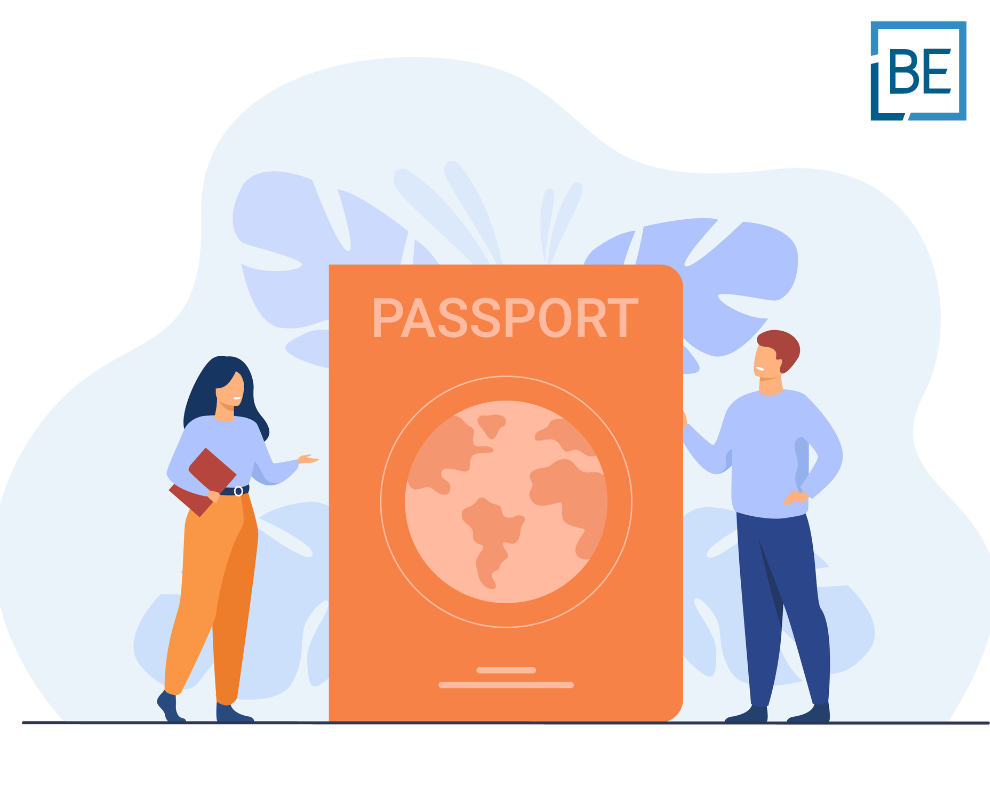Belaws Home ›› Thailand ›› Blog ›› Breaking Down the Latest Changes to Thailand’s SMART Visa and LTR Visa Requirements
legal
Breaking Down the Latest Changes to Thailand’s SMART Visa and LTR Visa Requirements
18/05/2023
Thailand’s SMART visa and Long-Term Residency (LTR) programs have undergone some changes recently, and it’s important for anyone planning to apply for one of these visas to stay up-to-date on these changes.
The SMART visa was introduced to attract highly skilled professionals and investors to Thailand, has expanded its eligibility criteria and introduced new benefits. Similarly, the LTR program, which allows foreigners to live and work in Thailand for an extended period, has also introduced some new requirements.
This blog post will explore the latest changes to both programs and discuss what they mean for foreigners looking to work, live, or invest in Thailand.
Key points
- The SMART visa is a special visa category to attract highly-skilled professionals, entrepreneurs, and investors to Thailand.
- The Long-Term Resident Visa (LTR) is a visa that allows foreign nationals to reside in Thailand for an extended period.
- Highly skilled professionals are now defined as investors, executives, and start-up business operators who wish to work, invest, or establish a business in specific target industries.
- Previously under the LTR, eligible highly skilled professionals were required to provide proof of employment or service in any field, now the job must be within specifically targeted industries.
What is a SMART visa?
A SMART Visa is a special visa category introduced by the Thai government, aimed at attracting highly-skilled professionals, entrepreneurs, and investors to Thailand. SMART stands for “Thailand’s Smart Visa,” which stands for “S” for Science and Technology, “M” for Manufacturing, “A” for Agriculture, “R” for Robotics, and “T” for Tourism and Hospitality.
The SMART Visa program offers qualified applicants a range of benefits and privileges, including streamlined visa processing, a longer visa duration, and various tax incentives. This program is part of Thailand’s effort to promote the country as a hub for high-tech industries, innovative startups, and advanced manufacturing.
Four types of SMART Visas are available, each with specific eligibility criteria and requirements. These include the SMART T Visa for entrepreneurs and investors in the tourism and hospitality industry, the SMART S Visa for high-skilled professionals in science and technology fields, the SMART I Visa for investors in the targeted industries, and the SMART E Visa for executives and high-level managers of companies operating in Thailand.
For more information, please take a look at our blog post here.
What are the new changes to the SMART visa?
The Board of Investment has recently released Announcement No. Por. 5/2023. This announcement pertains to the SMART visa’s qualifications, criteria, and conditions amendment.
Specifically, it modifies Activity 1.1, previously outlined in Announcement No. Por. 12/2561 on December 18, 2017. The updated section provides a new definition for “highly-skilled professionals.”
Highly skilled professionals are now defined as investors, executives, and start-up business operators who wish to work, invest, or establish a business in the following target industries:
(1) Next-generation automotive industry
(2) Smart electronics industry
(3) Wellness tourism industry;
(4) Agriculture, food and biotechnology industry
(5) Automation and robotics industry
(6) Aviation and logistics industry
(7) Biofuel and biochemical industry
(8) Digital industry
(9) Medical hub industry
(10) Defense industry
(11) Direct and significant supporting industries for the circular economy (e.g., fuel production from wastes, water resource management, etc.)
(12) Aviation and aerospace industry
(13) Human Resource Development in Science and Technology
(14) Environmental Management and Renewable Energy
(15) Technology and innovation management and startup ecosystem
(16) Development for technology targeted
(17) International Business Center – IBC
(18) Alternative dispute resolution services
Who qualifies as a highly skilled professional under the SMART visa?
Anyone who satisfies the following criteria will be eligible to apply for a SMART visa as a highly skilled professional:
- Applicants must have a minimum annual income of 1.2 million baht or equivalent.
- Must hold a bachelor’s degree or higher in a relevant field.
- Must have a job offer from a qualified employer in Thailand.
- Must have at least five years of work experience in their field of expertise.
- Must have a valid professional license or certification in their respective field.
Holders of a SMART S visa are eligible for the following:
- One-year visa issued and renewable for two (2) years if requirements are met
- No work permit is required for work in the endorsed company
- 90-day Immigration reporting extended to one-year
- No re-entry permit required
- Spouse and children granted permission to stay in Thailand
- Spouse granted permission to work without work permit requirement
What is the LTR visa?
The Long-Term Resident Visa (LTR) is a visa issued by the Thai government that allows foreign nationals to reside in Thailand for an extended period. This visa is intended to attract high-value individuals who wish to stay in the country for an extended period for various reasons, such as work, retirement, and stimulating the Thai economy.
The LTR visa is issued for up to ten years and is renewable. The visa holder is permitted to work or engage in business activities in Thailand but must obtain a work permit or business visa extension from the Thai immigration authorities.
The eligibility requirements for the LTR visa vary depending on the purpose of the applicant’s stay and nationality. Applicants must demonstrate financial stability, a clear criminal record, and a valid reason to stay in Thailand.
Foreign nationals who wish to stay in Thailand for an extended period can apply for a Long-Term Resident Visa (LTR). However, the eligibility requirements for an LTR visa vary depending on the purpose of the applicant’s stay and nationality.
The LTR is designed to attract high-potential foreigners to Thailand. For this visa, high-potential foreigners are divided into four groups:
- Rich global citizens
- Wealthy retirees
- Professionals working in Thailand
- Highly skilled workers
For more information, please take a look at our blog post here.
What are the new amendments to the LTR?
The Board of Investment recently announced (No. Por. 6/2566) changes to Thailand’s Requirements, Criteria, and Conditions for the Long-Term Resident Visa program.
This announcement modifies the previous conditions outlined in the Announcement, which aimed to attract highly skilled foreign nationals to invest in Thailand’s economy.
Previously eligible expatriates were required to provide proof of employment or service with a domestic or foreign enterprise, higher education or research institutes, specialized training, or public agencies in Thailand. Now, the job must be in the following targeted industries:
- Next-generation automotive
- Smart electronics
- Quality tourism
- Agriculture, food, and biotechnology
- Aviation and logistics
- Automation and robotics
- Aviation and aerospace
- Biofuels and bio-chemicals
- Petrochemical and chemical (including smart materials)
- Digital
- The medical hub
- Defense
- Any industries referring to the circular economy (e.g., waste fuel production, water resource management, etc.)
- International Business Centers or IBCs
- Other industries where expatriates must provide proof that they will work using distinct skills in their domain such as:
(i) Avant-garde Research and Development related to the industry or technology, like Biotechnology, Nanotechnology, Advanced Material Technology, and Digital Technology
(ii) Training human resources in scientific fields and technology for vocational education or Education at a higher level
(iii) Making use of technology related to artificial intelligence, machine learning, automation technology and robotics technology in businesses
(iv) Digital-prompted services
(v) Consulting Marketing or financial advice
(vi) Environment and energy management
(vii) Consultancy or management in the innovation start-up incubation program or acceleration program, enterprise ecosystem support etc .
(viii) Provision of alternative solutions for disputes
(ix) Ensuring that foreign trade and investment promotions promotion businesses contribute to and promote growth in overall economic development and investment with business groups and chambers of commerce representing foreign nations.
Should I get a SMART visa or an LTR visa?
Here is a comparison between Thailand’s LTR visa and SMART visa:
Eligibility:
LTR visa: Eligibility criteria vary depending on the purpose of the applicant’s stay and nationality. Generally, applicants must demonstrate financial stability, a clear criminal record, and a valid reason to stay in Thailand. The LTR visa is designed to attract high-potential foreigners in four groups: rich global citizens, wealthy retirees, professionals working in Thailand, and highly skilled workers.
SMART visa: The SMART visa is designed for highly skilled professionals, entrepreneurs, and investors in targeted industries. Applicants must have a minimum annual income of 1.2 million baht or equivalent, hold a bachelor’s degree or higher in a relevant field, have a job offer from a qualified employer in Thailand, have at least five years of work experience in their field of expertise, and have a valid professional license or certification in their respective field.
Benefits:
LTR visa: LTR visa holders can stay in Thailand for up to ten years, and the visa is renewable. The visa holder is permitted to work or engage in business activities in Thailand but must obtain a work permit or business visa extension from the Thai immigration authorities. Other benefits include:
A discounted personal income tax rate
Holders of the LTR visa can take advantage of a special Personal Income Tax (PIT) rate of 17%. The current PIT rate for normal employees is taxed at a progressive rate (from 5 to 35%).
This is an attractive benefit, as it is likely that the tax rate for a ‘Highly Skilled’ professional (who the LTR is targeted at) will be taxed at one of the higher progressive rates. Therefore, this reduced PIT rate could result in a significant tax saving for the holder.
Permission to work in Thailand
Holders of the LTR will be eligible to receive a Digital Work Permit. This is a significant attraction for those who wish to come to Thailand as a Digital Nomad and work legally. This is currently not possible through the existing visas on offer.
The removal of the requirement for employers to hire four Thai citizens per foreigner
Setting up a company in Thailand would be an attractive option for holders of an LTR who applied under the ‘Work From Thailand’ or ‘Highly Skilled Professionals’ options.
One of the drawbacks to forming a traditional company structure (Private Limited Company) in Thailand is the restrictions on hiring foreign staff. Typically, you must hire 4 Thai employees for each foreign staff member. This quota does not apply to LTR visa holders.
Fast track at international airports
LTR visa holders can take advantage of the fast-track services available to travelers at Thai airports and avoid the often long and slow lines.
1 year reporting to Immigration instead of 90 days
Most visa holders in Thailand must submit a notification of their place of residence to the Thai Immigration Office every 90 days. This is not required for holders of the LTR, who only need to do this report once per year.
SMART visa: Holders of a SMART S visa are eligible for a one-year visa; this visa is renewable for two (2) years if requirements are met. SMART visa holders require no work permit when working for the endorsed company. Other benefits include 90-day immigration reporting being extended to one year, no re-entry permit required, spouse and children granted permission to stay in Thailand, and the spouse being granted permission to work without a work permit requirement.
Target Industries:
LTR visa: No specific industry is targeted.
SMART visa: Target industries for SMART visa holders include the next-generation automotive industry, smart electronics industry, wellness tourism industry, agriculture, food and biotechnology industry, automation and robotics industry, aviation and logistics industry, biofuel and biochemical industry, digital industry, medical hub industry, defense industry, direct and significant supporting industries for the circular economy, aviation and aerospace industry, human resource development in science and technology, environmental management and renewable energy, technology and innovation management and startup ecosystem, development for technology targeted, and international business center – IBC, and alternative dispute resolution services.
Cost:
LTR visa: The LTR visa is very expensive compared to other visa options in Thailand. The official application fee for the LTR visa is 50,000 THB.
SMART visa: The SMART visa has a processing fee of 10,000 THB annually. If you have dependents, they are also subject to this fee.
In summary, while the LTR visa is designed to attract high-potential foreigners for various reasons, the SMART visa targets highly skilled professionals, entrepreneurs, and investors in specific industries. Both visas have their eligibility criteria and benefits, and applicants should carefully consider their options before deciding which visa to apply for.
How can Belaws help?
For more information about SMART or LTR visas in Thailand, why not talk to one of our experts now?
This article is for information purposes only and does not constitute legal advice.
Our consultations last for a period of up to 1 hour and are conducted by expert Lawyers who are fluent in English, French and Thai.
Consultations can be hosted via WhatsApp or Video Conferencing software for your convenience. A consultation with one of our legal experts is undoubtedly the best way to get all the information you need and answer any questions you may have about your new business or project.
USD 150
Up to 1 hour
Online payment (Paypal or Credit card)
Legal consultation can be conducted in English, French or Thai
Legal consultations are handled by experienced lawyers from the relevant fields of practice
Frequently asked questions
What is the essence of a prenup?
The essence of a prenup, or prenuptial agreement, is to outline how assets, properties, and finances will be divided in case of a divorce or separation.
Can you put an infidelity clause in a prenup?
Yes, it is possible to include an infidelity clause in a prenup, but it should be done in accordance with laws and public policy.
Who benefits most from a prenup?
A prenup primarily benefits individuals who want to protect their personal assets, business interests, or inheritances in the event of a divorce or separation.
Why would a woman want a prenup?
A woman may want a prenup to safeguard her personal assets, business interests, or rights in the case of a divorce or separation, while providing a sense of security and peace of mind.
Related articles
Subscribe today
Subscribe today
To our newsletter for all the latest legal news
in South East Asia, Belaws updates and
special promotions on our services.
To our newsletter today for all the latest legal news in South East Asia,
Belaws updates and special promotions on our services.






 Image by
Image by 